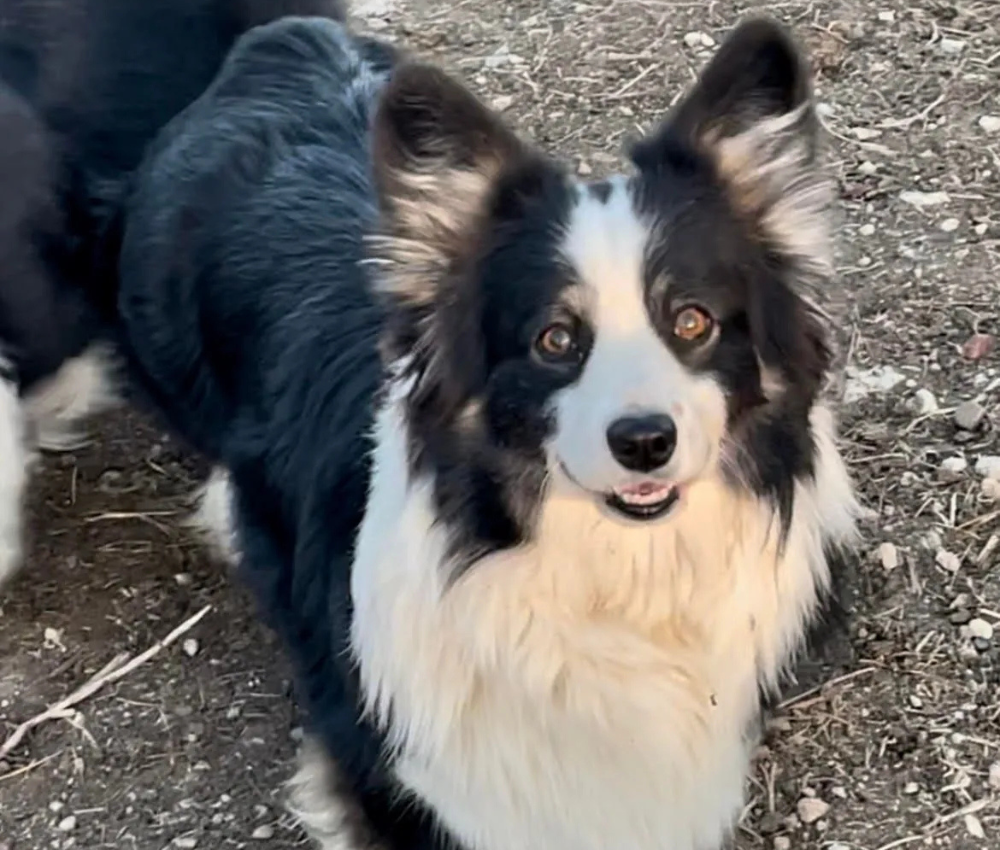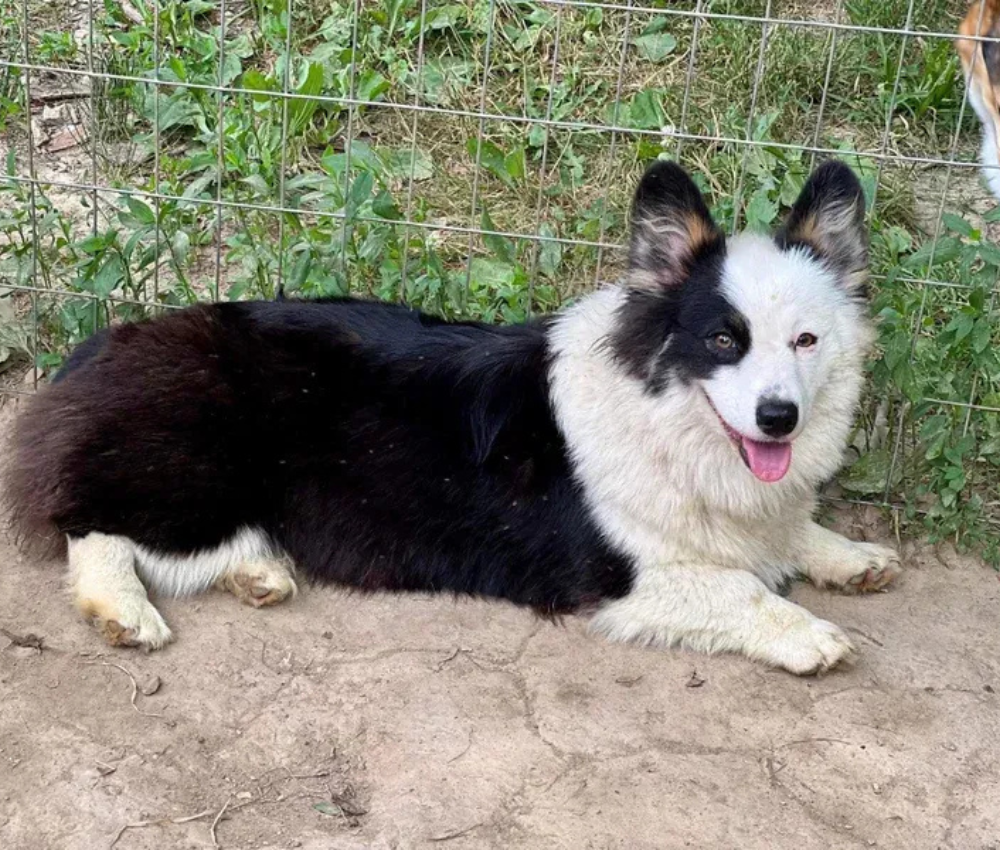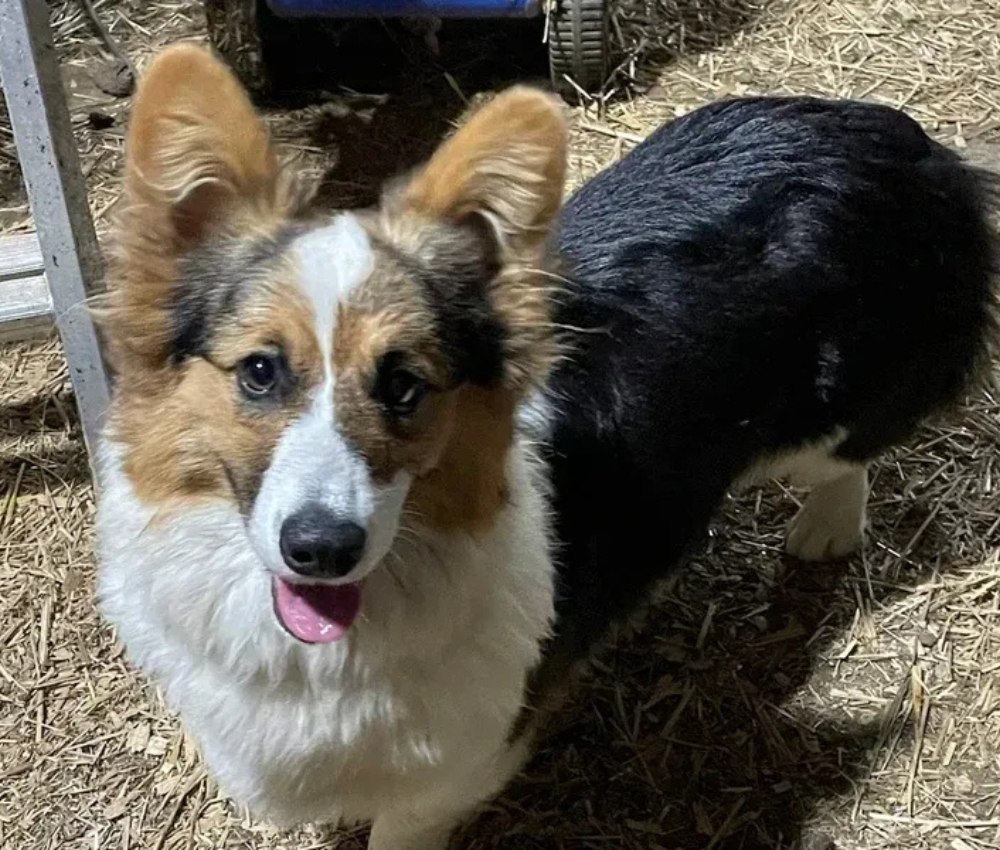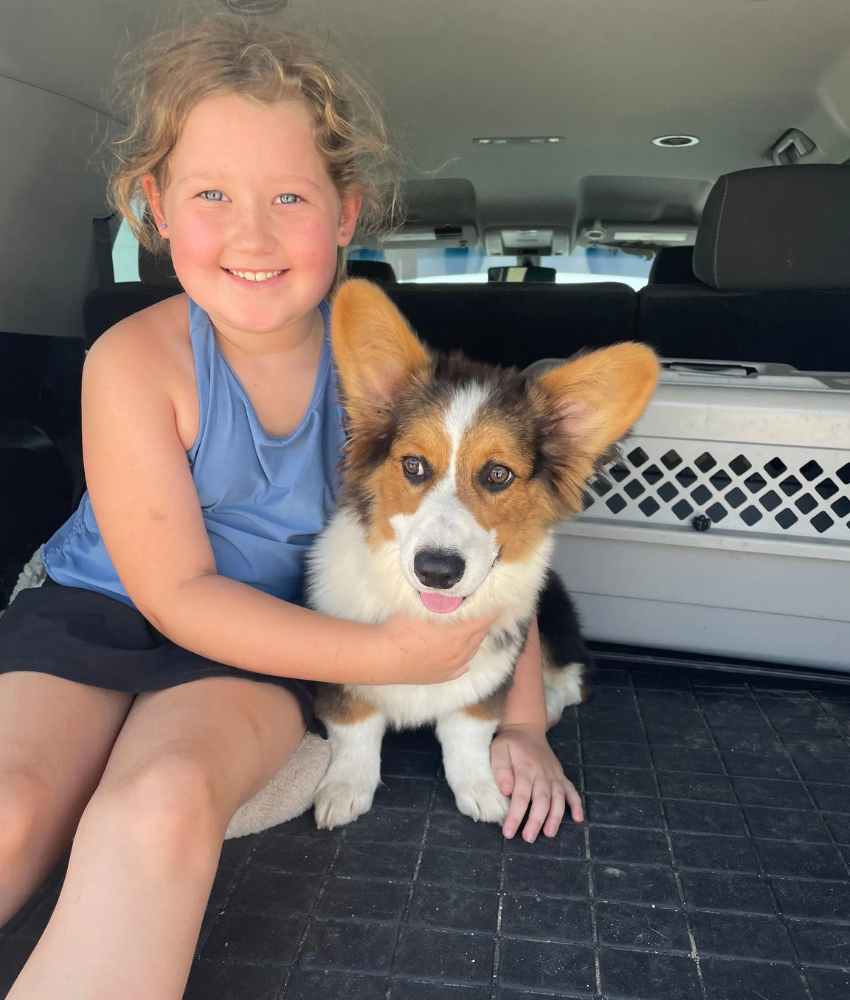Family-raised Fluffy Corgis with love from our home to yours – happy, healthy pups from the heart of Missouri.

Get to know our playful, lovable sires and dams raised with care in our family home.

See our current or upcoming litters and join the waitlist to welcome your new best friend.

Our sweet retirees are living their best lives - see the corgis who helped start it all.
Our beloved corgis are part of our family first. Each one brings their own charm, personality, and fluffy cuddles into our home and hearts. From proud sires to nurturing mamas, these pups are the heart of Ranchhand Corgis North.

Black-headed Tri, Full Fluffy (Daughter of Nikki & Tucker). A playful mama with a soft coat and a heart of gold.

Black-headed Tri, Full Fluffy (Daughter of Nikki & Tucker). Always smiling, Monica is affectionate and endlessly huggable.

Red-headed Tri, Full Fluffy (Granddaughter of Eva). Sweet and sassy - Tessa brings energy and elegance to every litter.


We focus on the health, temperament, and genetics of every puppy we raise - because your future best friend deserves the very best from the start.

Our corgis are part of our family, raised in our homes, around people and animals, making them well-socialized, confident, and ready to become a beloved part of your life.
Welcoming a Ranchhand Corgi into your family is easy! We’re here to guide you every step of the way – from checking availability to cuddle time at pickup.
View current or upcoming litters on our website.
Call, email, or fill out our form with any questions.
We’ll share photos, health info, and what to expect.
Bring a whole year of fluffy corgi joy into your home. Our calendars feature real photos of our own corgis, captured throughout the seasons.
Price: $15
($10 for the calendar and $5 for shipping)
Limited quantities available.
Contact us to order yours today and enjoy corgi smiles all year long!

Beautiful monthly corgi portraits
Photos of our sires, dams, and favorite fluffy pups
High-quality print with vibrant, true-to-life colors
Perfect gift for corgi lovers, family, and friends
We’re honored to be a part of so many happy beginnings. Here’s what our extended Corgi family has to say about their experience with us and their new four-legged best friends.

Trustindex verifies that the original source of the review is Google. Tommy the beautiful sable fluffy corgi that we got from Julie is absolutely the most amazing boy! Thank you SO much!!Posted onTrustindex verifies that the original source of the review is Google. Dale, the puppy that I got from Brad and Julie is absolutely amazing. You can tell right from the start that they have great love for all of their dogs. Their knowledge and care come through in every conversation. I got to see their set up when we picked up our puppy, and they go to great lengths to take exceptional care of all of their dogs. I would give them 10 stars if I could.Posted onTrustindex verifies that the original source of the review is Google. Julie is amazing to work with! She was willing to let us visit several times before we could bring our Honey home and she taught us everything to be successful dog parents! The help also didn’t stop when we received our precious Honey, but Julie is willing to answer any and all questions because we now both passionately want the best for our dog! Wonderful experience with everything! We For sure recommend Ranchhand Corgis North!Posted onTrustindex verifies that the original source of the review is Google. Julie was so informative, sent pics of growth until we could pick up our very healthy smart little fur ball. I highly recommend her and her beautiful corgis! I'll never buy another puppy from anyone else!Posted onTrustindex verifies that the original source of the review is Google. I met Julie not long after I lost my dog Duke. We spoke on the phone and right then I knew Ranchland Corgi’s was for me. Her compassion and understanding for my grief was more than I could have ask for from anyone. Not long after talking to her I went to visit her operation and was impressed beyond words. Her dogs are some of the best taken care of that I have ever seen from a breeder. I ended up picking a female Sable fluffy that was only 4 weeks old and she allowed me to come and visit her weekly until it was time to come home. I couldn’t have ask for anything more. Everything about Ranchland Corgi’s North is extremely professional and above reproach. Julie is a first class caretaker of her Corgi’s and her concern for not only myself and my family can never be replayed. I not only gained a perfect fluffy Corgi I found a friend. If you are looking for a quality experience with a quality person I would recommend Julie and Ranchland Corgi’s North without any hesitation or reservation she is definitely the best you will ever find.Posted onTrustindex verifies that the original source of the review is Google. I lost my first corgi after 14 years and started looking around for a breeder, and I came upon Julie with Ranch Hand Corgis North in Missouri. I reached out about a future litter and she let me know that they would be having a litter later in the year, but she did have a special little girl that hadn’t found a home yet. We started talking through email and she introduced me to Laylah. I instantly fell in love and we decided to head down to Missouri to go meet little miss Laylah. She came out of her kennel and launched right into my arms and I don’t think I’ve ever been so instantly smitten. She has become our best friend! We fell so in love with Ranch Hand Corgis that we ended up getting Laylah a brother from her daughter, Jo, down in Texas. You honestly can’t get a corgi from more wonderful people. I keep in regular touch with Julie and she never gets annoyed with me sending updates about our sweet Laylah. Laylah is the fluffy, and Winton is our regular coat - both forever Ranch Hand Corgis.Posted onTrustindex verifies that the original source of the review is Google. Best breeder ever!!! Such great customer service!! Julie Is by far the best human I have ever met! She has such a warm heart. I’m so happy I was able to find her! Billy and Elton are the cuties fully corgis I’ve ever seen!Posted onTrustindex verifies that the original source of the review is Google. A couple of years ago my husband and I talked about adding a fur baby to our crew. Not being in a hurry I reached out to Julie with Ranch Hand Corgis North just to inquire about how often they have litters and was told I have a few ready to go so why don't you bring out your other puppies for a play date and see how it goes. We went for 2 play dates and fell completely in love with our boy Boone!! Hands down he is the most lovable, easy going, smart, sassy handsome little man!! Fast forward my mother lost her dog of many years and was so lonely but just didn't really know if she was ready for another, but after going on Vacation with us and our Boone followed her everywhere she went and was so tentative to what she was doing and where she was going. Long story short she has now added a new puppy Jack to her house and is completely over the moon in love with him!! If you are looking for a smart, family friendly fur baby you have come to the right place!! These dogs are loved like part of the family from day one and it shows in there temperament and demeanor! We have truly been blessed not just once but twice with the best of the best! I have shared photos of both or Ranch Hand Corgis North pups, our Boone is the dark pretty boy and Jack is the fluff ball.Posted onTrustindex verifies that the original source of the review is Google. To say that Julie and her hubby are amazing is an understatement! I am so lucky I found her. I got The most sweet and beautiful boy ever! I loved him so much I HAD to have another baby from her a few weeks later! Julie and her husband made it happen for me not once but TWICE! I’m in Oklahoma so that was nothing short of incredible. They truly care about their fur babies getting to the right families! They have asked for updates on the babies several times. They are passionate about everything! Would recommend and I do plan on getting another baby for my crew! Kash and Kensi are so beautiful and loved. Thank you!Posted onTrustindex verifies that the original source of the review is Google. Julie and her family were amazing to work with when looking for a new pup. They are all down to earth and easy to talk to. She took the time to meet with my son and we told her what we were looking for. When my son picked up Rocky he wouldn't put him down and I knew he had made his choice. Julie understood that we were looking for a companion to help my son get through a hard time. Rocky has been perfect for him and to be quite honest I didn't expect to get as attached. Rocky is apart of our forever family now and I wouldn't have done it any other way. We absolutely love him. If we are ever looking to get another pup in the future I would go back to Ranch hands Corgis North. Julie is a very experienced breeder and I trust her when picking out the right pup.

Honoring the sweet corgis who gave us love, laughter, and beautiful memories.
